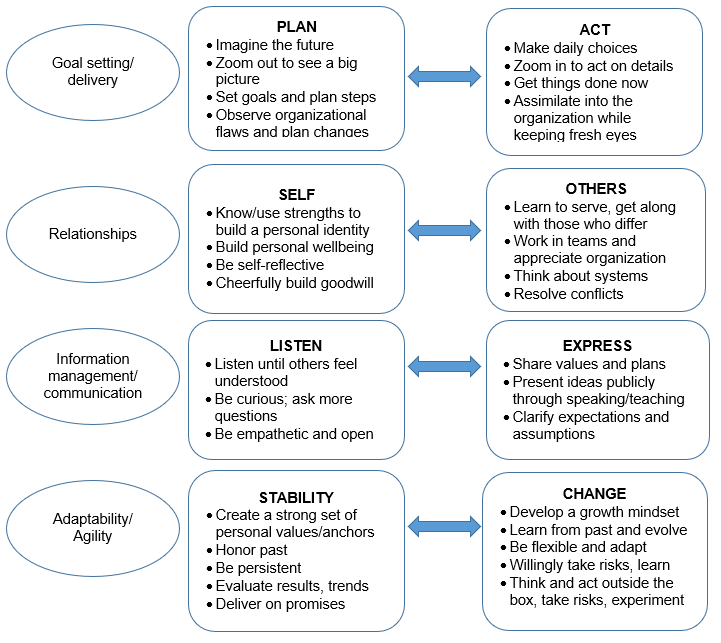4 Leadership Soft Skills Required for Business and Personal Success
- 4 Min Read
What are ‘soft skills’, and which are the skills we truly need to succeed throughout our lives? Dave Ulrich and Wendy Ulrich give you the four soft skills all leaders should develop.
- Author: Dave Ulrich and Wendy Ulrich
- Date published: Nov 29, 2019
- Categories

We often get asked, “What skills are required to succeed in the new world of work?”
Business leaders want employees with skills to deliver results. HR leaders work to hire, train, and pay for the right skills. And perhaps most importantly, employees at all levels wonder what they should learn, know, and do to improve their personal career opportunities.
Why “soft” skills matter more
Over the years, we have worked with organizations to attain both technical or “hard” skills (like operational excellence, software engineering, market planning, financial analysis) and “soft” skills (such as resilience, cultural sensitivity, relationship savvy, and leadership).
Ideally individuals have both hard and soft skills. Hard skills, often gained through formal training, are more discernable and measureable. But the softer skills acquired from experience often have longer term impact on results. Being technically proficient as a software engineer on a specific project is valuable, but knowing how to continue to excel as an engineer through countless interpersonal challenges, organizational upheavals, and broad market changes is essential. These “soft” skills are often more difficult to define, master, and deliver.
In HR, the adage is often, “Hire for cultural fit (soft skills); train for technical expertise (hard skills).” Helping employees define and upgrade their soft skills often increases their career opp0rtunities.
What are the “soft” skills?
Several groups have identified soft skills required for the future workforce (e.g. World Economic Forum, Singularity, Drucker Forum). These skills can be loosely clustered into four categories:
- Goal Setting/Delivery
- Relationships
- Information Management/Communication
- Adaptability/ Agility.
These categories are consistent with our recent work on leadership effectiveness described in the leadership code 2.0.
That work also uncovered the importance to leadership effectiveness of navigating paradox. Probing the paradoxes inherent in each of these four categories, we can expand our understanding of the soft skills that help employees adapt to the changing nature of work (see Figure).

When employees become proficient at the paradoxical skills related to these four categories, they create personal career opportunities for today and tomorrow. When business and HR leaders identify, measure, and support these paradoxical skills, they increase customer and investor confidence in sustainable organization success.
How to develop the softer skills
Often technical, hard, skills come from formal training that builds on personal interests and talents. The softer, paradoxical skills above are often acquired through experiences that can seem far-removed from the actual work outputs of the business. These experiences may include living and working outside of one’s comfort zone, taking on stretch roles, facing setbacks with resilience, taking on unrelated assignments or projects, or volunteering outside of work.
For example, for three years we supervised a mission for our church in Montreal, Quebec in Canada. We worked with over 500, 19-to-24 year-old women and men doing church outreach and community service for 18 to 24 months. We saw the majority of them learn skills in the four domains of goal setting, relationships, communication, and adaptability that exceeded what others their age might learn in more traditional work settings. We have watched many of them adapt these skills to excel in their future education, family, and work settings.
Employers who pay attention to the soft skills in recruiting enhance the long term skill base of their workforce. Early-stage career employees benefit from experiences that help develop these skills, especially when training and one-on-one conversations help them identify and nurture these subtle skills. Taking the chart above or one like it as a roadmap, maturing employees can self-assess, practice, and mentor others in these skills.
So, how well do you define, develop, and demonstrate these emerging skills for yourself and your organization?









